7 May 2025
5 min read
Shade-Grown Coffee: Supporting Biodiversity and Farmers’ Livelihoods
How scientists and smallholder farmers in Mexico are growing coffee that nurtures both communities and ecosystems.

Shade-grown coffee plantations can be powerful allies in the fight against climate change and biodiversity loss.
The use of native trees can provide habitats for wildlife, protect soil health, and support carbon capture. Utilising native biodiversity in shade-grown coffee plantations isn’t just about environmental benefits either – it must also meet the needs of farming families who rely on coffee for their income.
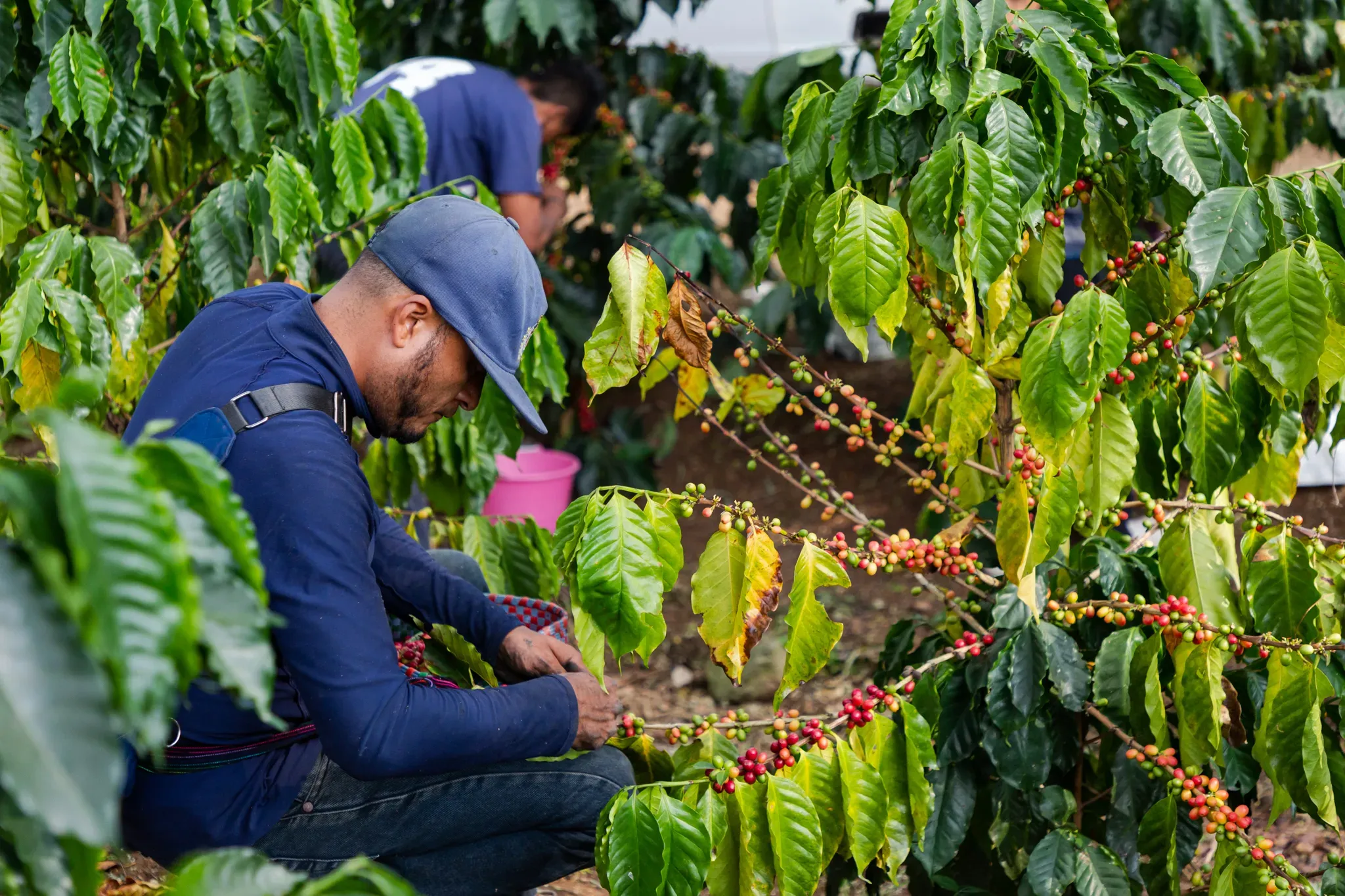
Listening to Communities: Understanding Challenges and Needs
Balancing environmental sustainability and economic viability begins with deep engagement on the ground. Over the past two years, we have worked with coffee-growing communities in Veracruz, Mexico, seeking to understand their needs, challenges, and hopes for the future.
Many farmers have shared with us that while they see the value in maintaining shade-grown coffee systems, the economic realities of farming – such as fluctuating coffee prices, limited market access, and the pressure to maximise short-term yields – can often push them towards more intensive, less sustainable practices.
Addressing this challenge requires tailored solutions that make sustainability not just an ethical choice, but an economically viable one.
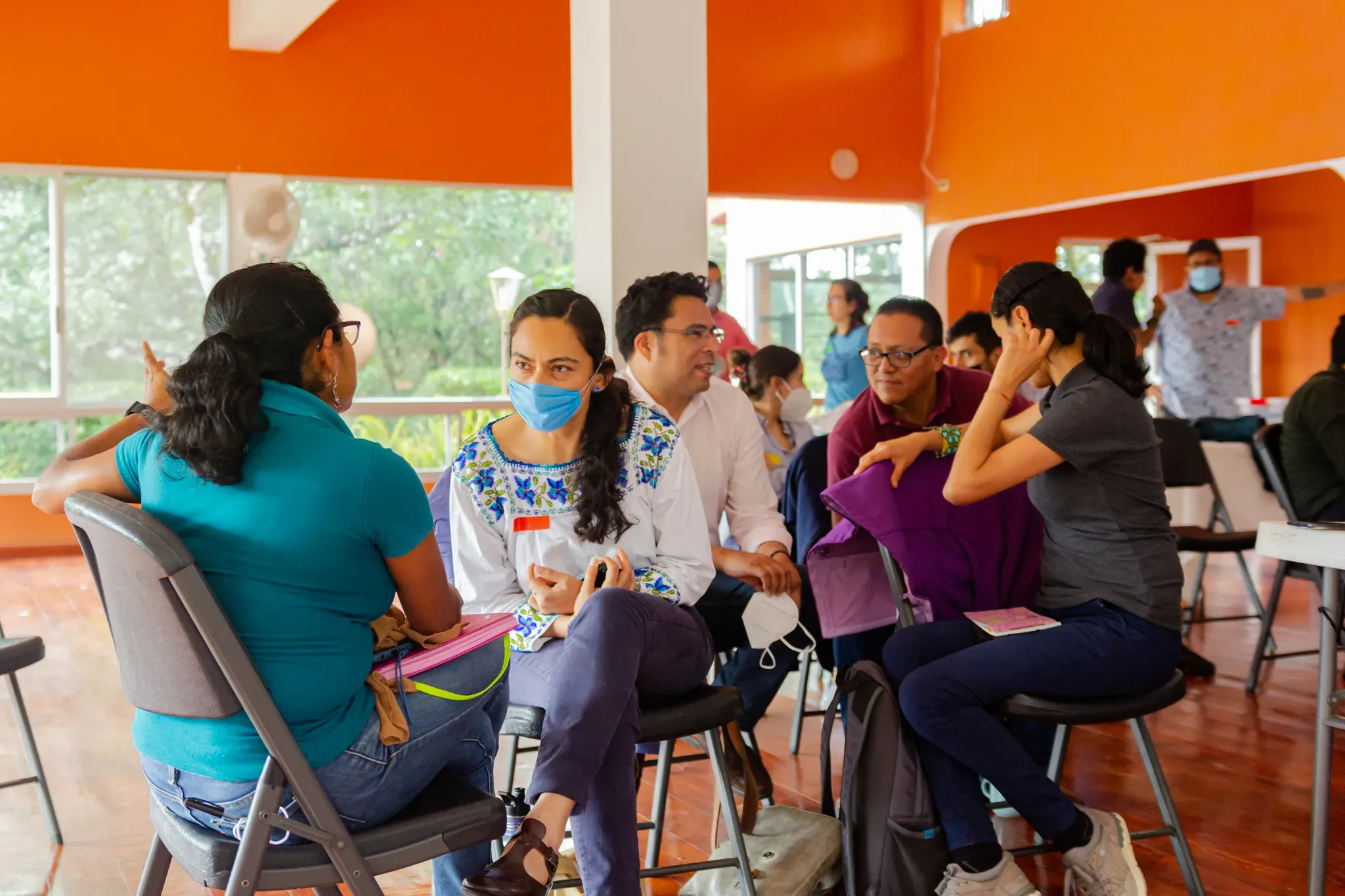
Building on this engagement, we have been partnering with smallholder farmers in Mexico to balance biodiversity conservation, climate mitigation, and sustainable livelihoods.
Through inviting direct participation of farmers in the project, we have been sharing knowledge and learning from the local ecological practices of farming communities, recognising the vital role that traditional knowledge plays in sustainable coffee cultivation. By integrating scientific research with local wisdom, we are exploring ways in which coffee can be grown to enhance biodiversity, increase carbon sequestration, and strengthen community resilience.
This collaborative process has not only revealed practical solutions but also highlighted key challenges—insights that now guide our efforts to empower farmers through targeted training and support.
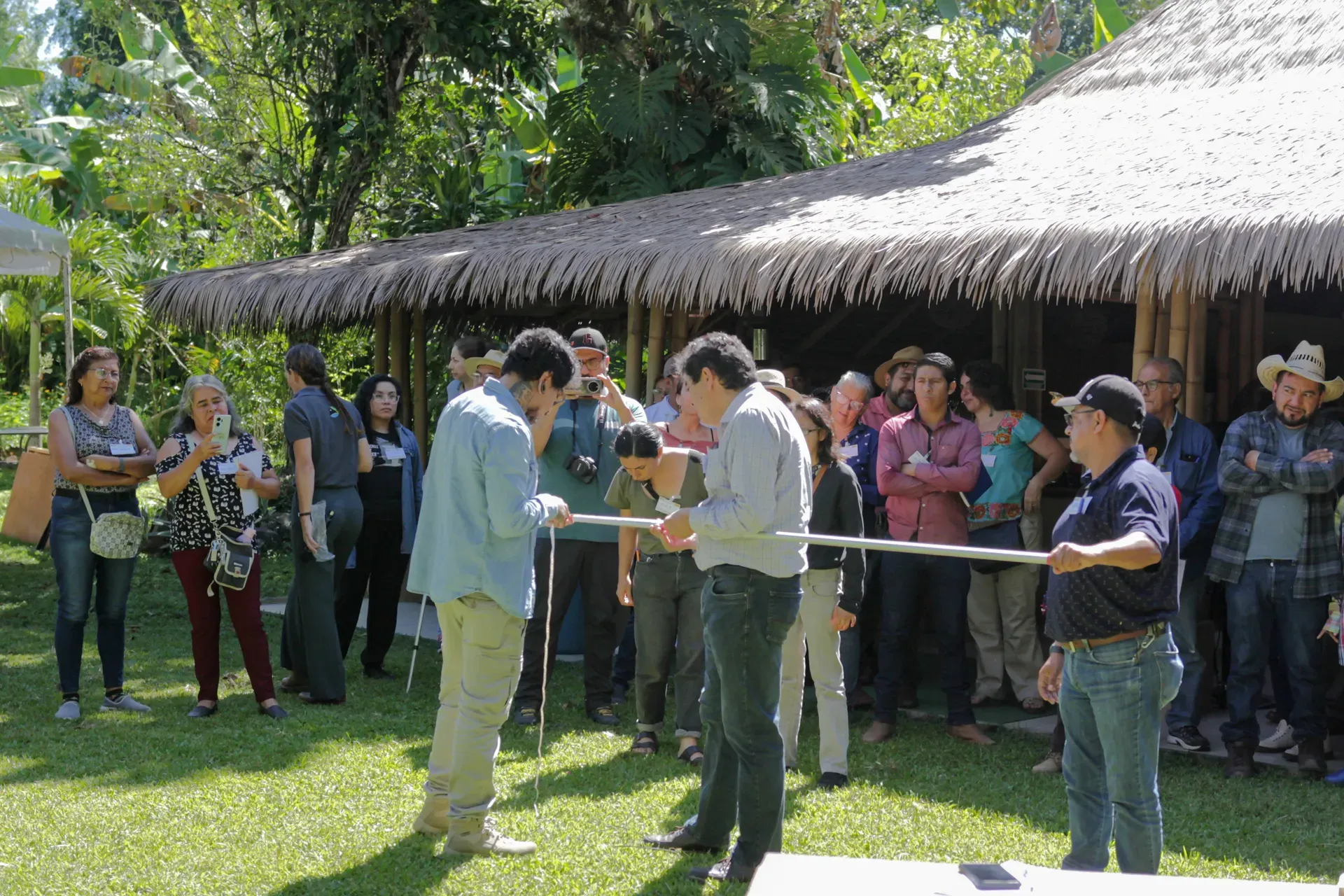
Empowering Farmers Through Training and Support
In response to these needs, our team collaborated with local partners to offer a series of capacity-building workshops designed to make both farming and the sale of shade-grown coffee more sustainable and profitable. Throughout the last year, farmers from various municipalities came together in workshops to learn and share:
- Sustainable farming techniques – improving soil health, managing shade trees effectively, and enhancing productivity without harming the environment.
- Market access and business skills – equipping farmers with tools and strategies to access better markets, set fair prices, and diversify their income sources through specialty coffee or complementary products like honey or cocoa.
- Gender Equality and Social Inclusion (GESI) – ensuring that that everyone, especially women and marginalised groups, can participate meaningfully and reap the benefits of these initiatives.
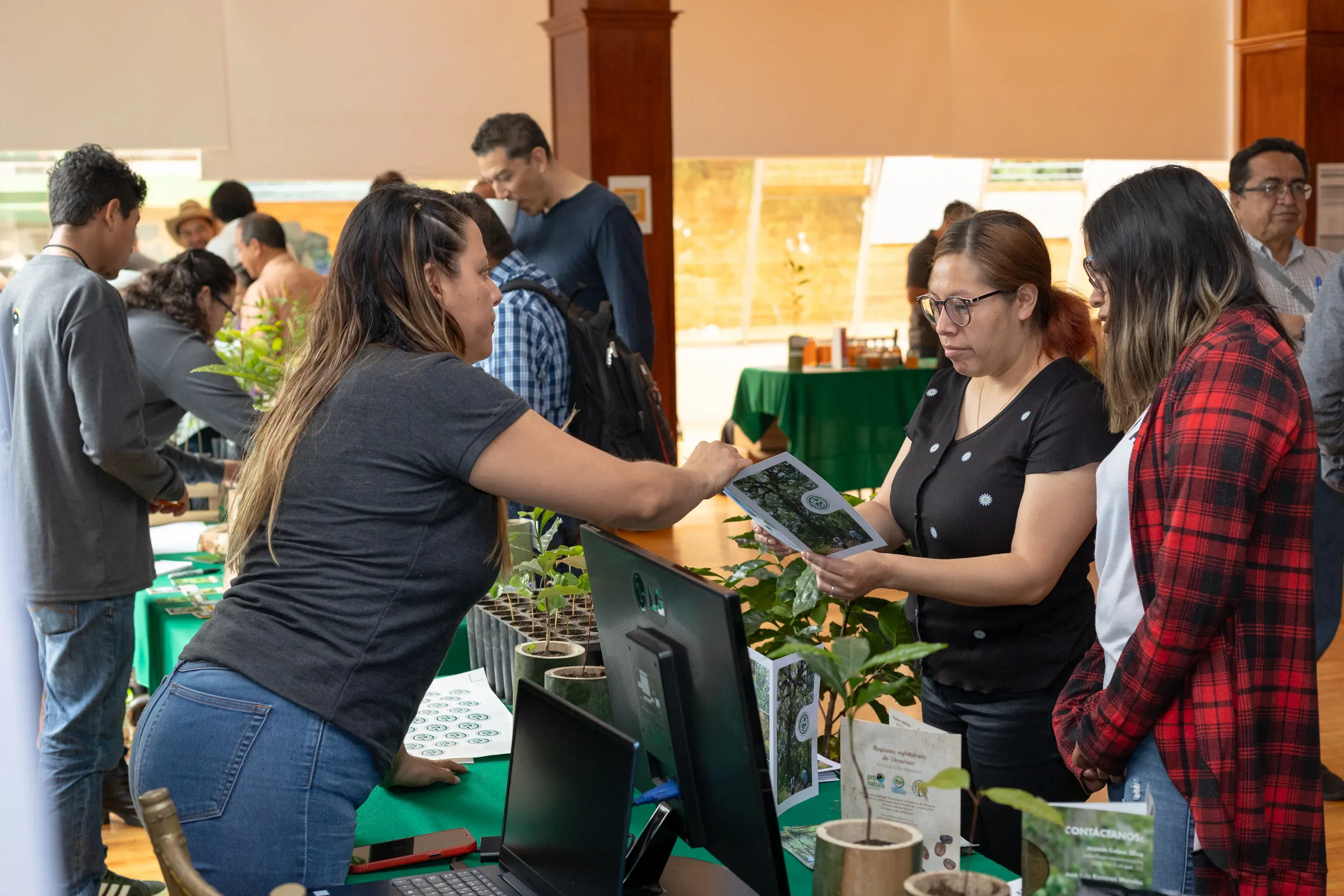
Gender Equality and Social Inclusion (GESI): Recognising Women’s Roles and Challenges
Women in coffee-growing communities are often the primary land managers and resource users, yet they face disproportionate barriers to market access, training and decision-making. A further challenge is unpaid labour – many women carry out household and caregiving tasks after working in the fields, which limits their ability to fully access economic opportunities. Our project has addressed these realities by:
- Providing targeted training and mentorship for women farmers, ensuring they have the knowledge and confidence to adopt sustainable practices.
- Addressing barriers to market access, helping women gain greater control over income and decision-making.
- Encouraging inclusive community leadership, where women’s voices are represented in cooperative and policy discussions.
Our project aims to foster more equitable family and community dynamics, ultimately strengthening local livelihoods. As one workshop participant explained:
“When I come home from the coffee fields, I still have cooking, cleaning, and caring for my family. I appreciate how these workshops highlight the extra work many of us take on as women, and I value the emphasis on women’s empowerment in our sessions.”
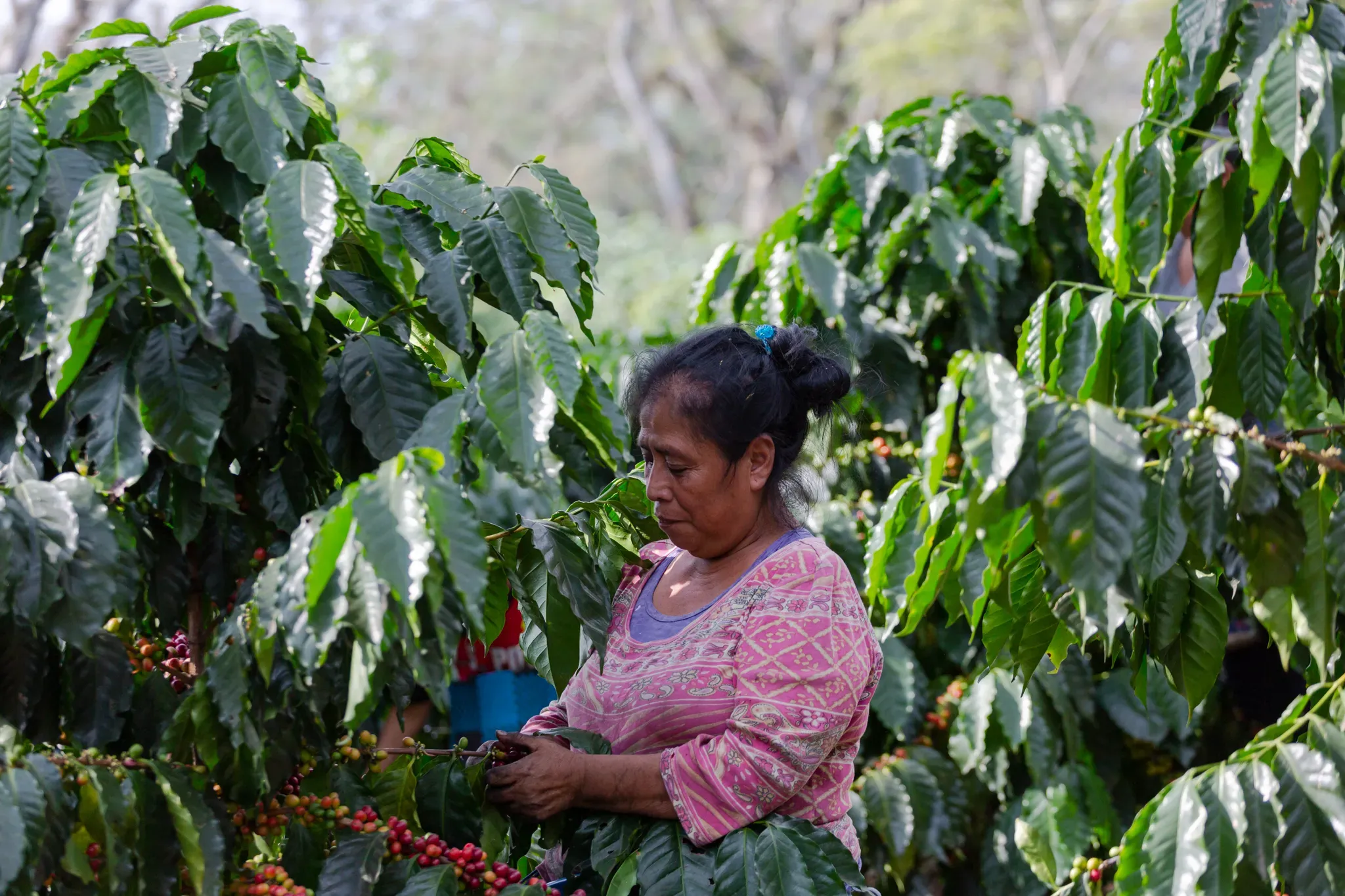
Real Impact: Tangible Benefits for Farmers and Communities
The impact of these efforts is becoming increasingly visible. Farmers are reporting stronger, healthier coffee plants, reduced reliance on chemical inputs, and improved soil quality, all of which contribute to long-term productivity. Many have also gained greater confidence in selling their coffee at a fair price, thanks to strengthened marketing skills and new business connections.
Beyond individual success stories, the project is fostering a wider transformation. Communities are seeing increased collaboration among farmers, better knowledge and resource sharing, and growing recognition of the benefits of shade-grown coffee.
This sense of collective purpose lays the groundwork for scaling up, allowing others in the region to replicate or adapt these methods.
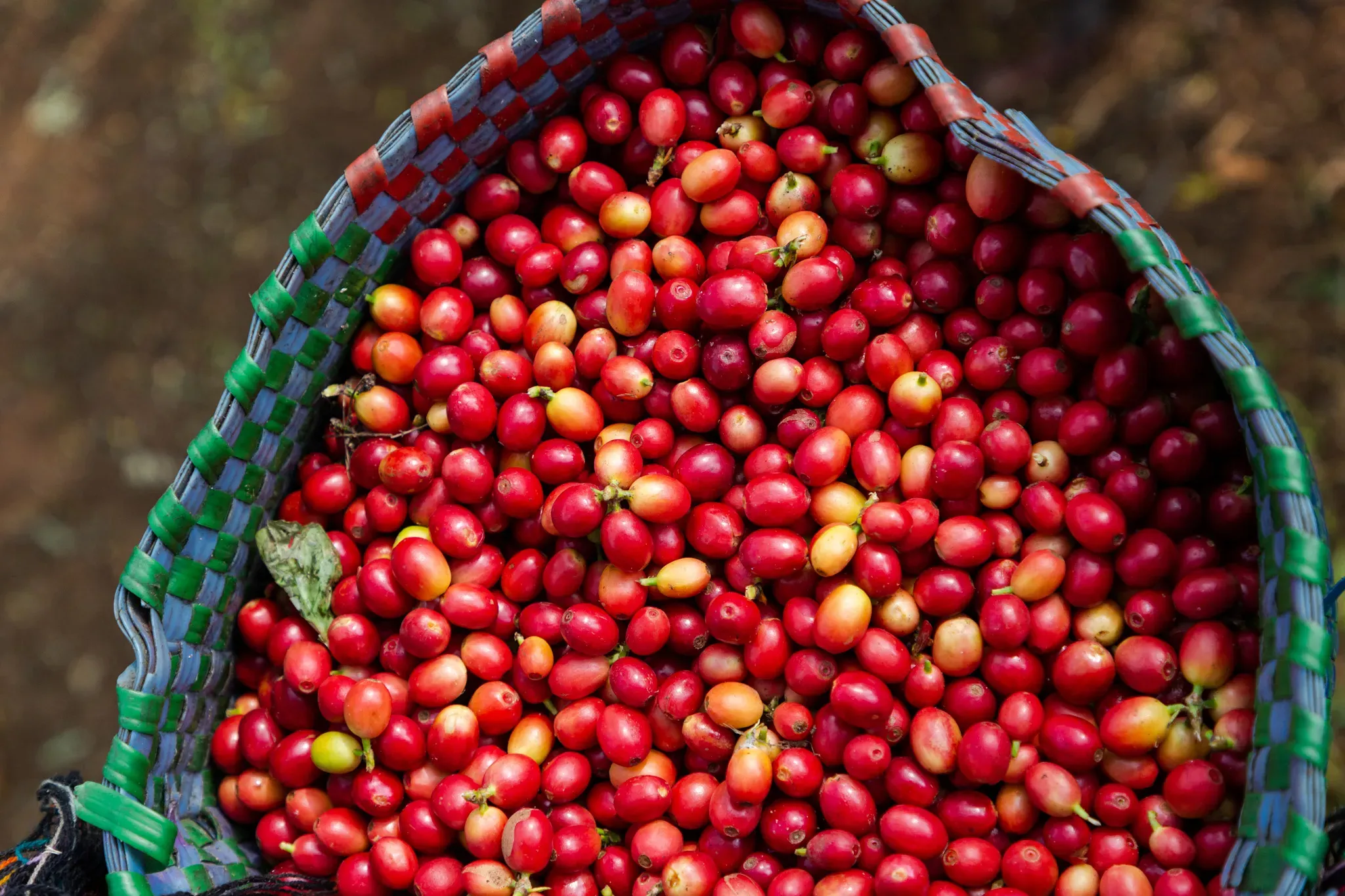
Looking Ahead: Building on the Momentum of Shade-Grown Coffee
The foundations laid over the past two years have created valuable momentum. Our hope is that the partnerships we’ve nurtured, the methodologies we’ve developed, and the knowledge we’ve shared will continue to inform and inspire efforts to scale sustainable agroforestry in coffee-growing regions.
We remain committed to sharing our learnings with organisations, policymakers, and businesses that have the potential to support or replicate this approach. The success of shade-grown coffee depends on collaboration—between farmers, researchers, businesses, and consumers.
By building on what’s already been achieved, we can continue moving toward a future where coffee production benefits both people and the planet, making sustainability the norm rather than the exception.
If you'd like to join us in achieving that vision, check out the below resources from our project.

Find out more on our English language project page
Enhancing carbon sequestration and improving livelihoods in Mexico's shade-grown coffee plantations
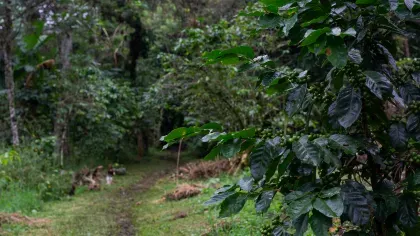
Read our peer-reviewed scientific paper behind this programme
Prioritisation of native trees for enhancing carbon sequestration in shade-grown coffee plantations in the State of Veracruz (México): linking conservation and ecological traits to community needs
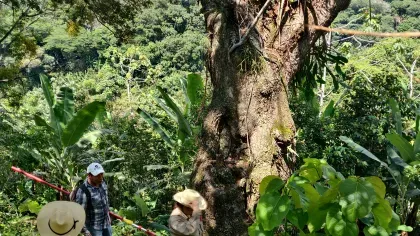
View the voices behind the project in this short film
#UKPACT Project "Carbon Capture in Shade Coffee Plantations in Veracruz"
About the Project
The project ‘Enhancing Carbon Sequestration and Improving Livelihoods in Mexico’s Shade-Grown Coffee Plantations’ is led by the Royal Botanic Gardens, Kew (Project Lead: Tiziana Ulian, Scientific Project Coordinator: Maraeva Gianella) in collaboration with the seedbank of the Facultad de Estudios Superiores Iztacala (FESI) of the Universidad Nacional Autónoma de México (UNAM); and Pronatura Veracruz A.C. and in partnership with the Instituto de Ecología A.C. (INECOL); and the Instituto de Investigaciones Sociales of UNAM.
The project is funded by UK PACT Mexico (Government of the United Kingdom), the Emberson Foundation, and the Aldama Foundation, with technical support from the British Embassy in Mexico.


